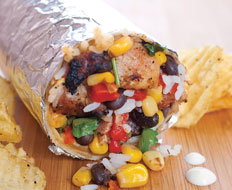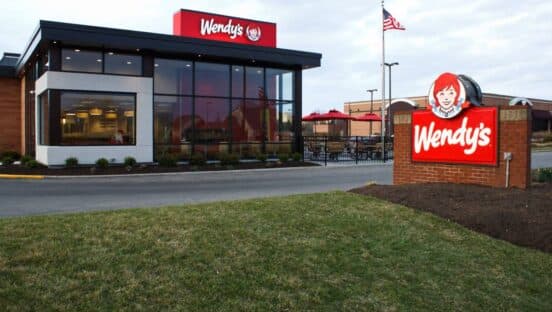With more consumers interested in knowing where their food comes from, a growing number of quick-service companies are either pressuring their suppliers to improve the humane treatment of animals or switching food suppliers altogether. Cage-free eggs, gestation crate–free pigs, and free-range chickens are showing up on more quick-service menus throughout the country.
Quick-service operators who are making the supply changes believe they are on the cutting edge of a growing movement as consumers with increasing access to food education care more about the origins of their meals.
Technomic found in its 2011 “Center of the Plate” studies that 41 percent of consumers say it is important that the pork they consume comes from animals that were treated humanely. About half of consumers polled said it’s important to them that the beef they eat comes from cattle that were treated humanely, while 58 percent said the same about poultry.
“People care about animals and want to see them treated well,” says Matthew Prescott, food policy director for the Humane Society of the United States. “This issue has been thrust to the forefront of our national attention. And legislation is increasingly mandating improved treatment of animals; eight states have passed laws to ban gestation-crate confinement of pigs. Major food companies have taken notice.”
Several major foodservice companies have already announced in 2012 significant changes to their food supplies. Compass Group, the world’s largest foodservice company, and Hormel Foods plan to be 100 percent gestation crate free by 2017. Bon Appétit Management Company, which operates more than 400 cafés for corporations, universities, museums, and specialty venues, plans to be 100 percent gestation crate free by 2015. Even McDonald’s and Wendy’s have announced that they would require their pork suppliers to phase out gestation crates for pigs.
Meanwhile, companies like Subway and Burger King have committed in the last couple of years to using eggs from cage-free hens.
“We’ve wanted to make all of our eggs cage-free since committing to cage-free shell eggs [in 2005],” says Bonnie Powell, director of communications for Bon Appétit. “From 2006 to 2008, our CEO, Fedele Bauccio, served on the Pew Commission on Industrial Farm Animal Production and was horrified by what he learned about factory farms.” Since then, Bon Appétit has made strides toward animal-welfare-certified suppliers, including its recent announcement to go gestation crate free, which Powell hopes “will catalyze our large national suppliers.”
New York City–based Chop’t Creative Salad Company started using only FreeBird Chicken, which comes from organic and antibiotic-free chickens raised on family farms in Pennsylvania’s Amish Country, in May 2011. Catherine Lederer, vice president of food and beverage for Chop’t, says the company switched to FreeBird Chicken as part of a larger commitment to more humane suppliers. Chicken accounts for 80 percent of the protein purchased by the company.
“Our goal is to invest in ingredients and focus on quality products that taste better, so that ties into a humane supply chain and the way the animals are raised,” she says. “It does contribute to the eating quality of the products. It produces a better-tasting product, the texture of the product is better, and you can see that if you tasted side by side with conventional.”
Cait Simmons, director of marketing for Boston-based Boloco, a fast-casual burrito chain, says that as more consumers educate themselves on food production, it’s vital for quick-service operators to meet their demand.
“It makes good sense that if you care about the product that you’re producing, you think about where food is coming from,” Simmons says. “I think you feel better about your business and it’s worth taking a potential hit in terms of it being more expensive than other products because it makes sense, from a business standpoint. It makes you more responsible.”
Some foodservice operators may be reluctant to change their food supply out of fear of the cost implications. Lederer acknowledges that the increase in food costs has been “significant” for Chop’t since making the switch to more humane proteins.
“It was about investing in the best ingredients, and we had to find efficiencies in our business to offset the costs,” Lederer says. “It’s definitely an investment, but one we think is absolutely worth it.”
Telling customers about the commitment to more humane food supplies is important to attract food-conscious customers, the experts say. Simmons and Lederer rely on their menus and in-store marketing to communicate supply information to customers.
Powell says Bon Appétit has implemented signage, and also reached out to student newspapers at all of its college clients about its efforts.
Prescott says companies like McDonald’s and Wendy’s have used positive publicity to tout their policies of eliminating gestation crates and using cage-free eggs. “With so many consumers paying attention to these issues, these types of strategies make perfect business sense,” he says.
Companies that have already made animal-welfare pledges say there are additional changes on the horizon. By 2015, Bon Appétit plans to buy at least 25 percent of its meat, poultry, and eggs from producers who have been certified by four independent animal-welfare groups that encourage farmers to allow animals to engage in natural behaviors.
Simmons says that while it’s more expensive to use food from more humane suppliers, it’s important to keep customers happy. “We want them to come back for a product that they’re excited about,” she says.











